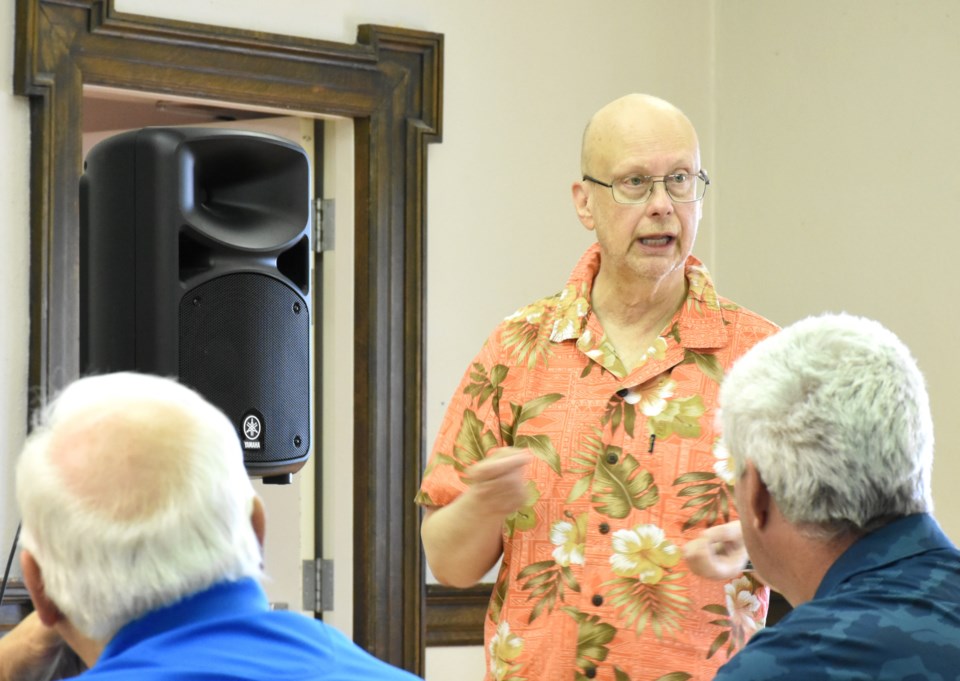Acclaimed sci-fi writer Robert Sawyer delivered a presentation about the topic of science fiction writing at the Moose Jaw Public Library on July 18 during the Saskatchewan Festival of Words in downtown Moose Jaw.
During his presentation, Sawyer — himself the author of 25 novels — gave some advice for aspiring sci-fi writers to develop some of their own ideas.
The best way to get involved in writing is to simply start. After two or three books — or one particularly good novel — a new writer will start to gain the attention of publishers and ultimately earn a much-coveted contract — but this takes time and work, he warned.
Science fiction, he explained, is constantly undergoing periods of change where certain types of stories — usually something that has the potential to change society — come in vogue. One example is what’s called “cli-fi,” or “climate fiction.” This genre followed the coat tails of modern climate change concerns.
In the ‘90s, another prevailing sci-fi theme was genetics. The reason for this was, as Sawyer explained, the ongoing human genome project that sought to map out human genetics for the first time in history. As genetics were able to predict (the probability of) diseases, this made for a wide range of writings on the topic.
The best place to begin, Sawyer advised, is with one of these prevailing social concerns. The key, then, is to explore the possibilities and say something interesting about it. Perhaps you’ll paint the picture of a dystopian future, or perhaps you’ll bring up concerns that others haven’t formally discussed.
No matter the story, the sci-fi writer should begin with some research and even immerse themselves in the topic of their choice.
“No matter the topic, there’s always an entry-level book I can read,” he explained. At the very least, he said to find a “For Dummies” book or even a cartoon guide.
Once you’ve learned the basics, Sawyer said the next step is to speak with a specialist. Researchers, he said, “love to talk.”
“I’ve never had anyone say ‘No’ when I approached them with respect (and) asked a person of specialized knowledge for their help.”
Describing sci-fi as “the Wikileaks of science,” Sawyer then said the genre stands as a platform for many scientists and researchers to “get the things they want to talk about out to the public.” Without this platform, he added, many of these individuals couldn’t share their very real concerns and, if they did try to speak out, they could lose funding and, ultimately, their jobs.
For more information about Sawyer or to purchase his books, visit SFWriter.com or stop by your local bookseller.




